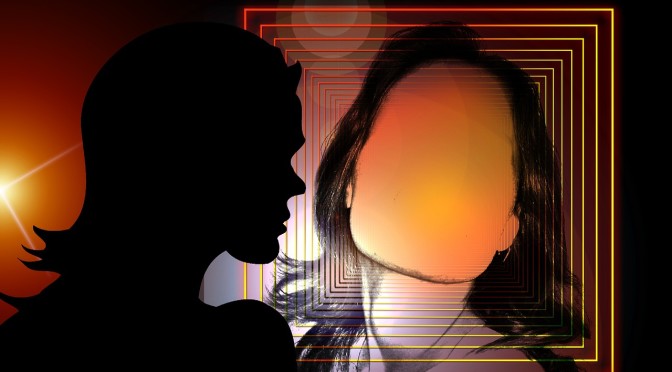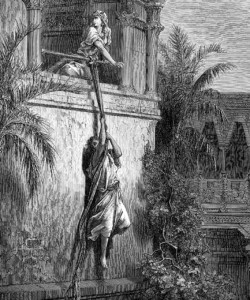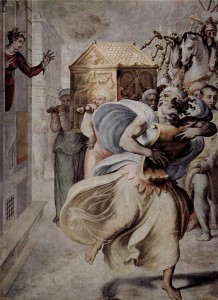I read an article about how Michal is a bad example because of her show of bitterness when she confronted David in public. I left a comment in hopes the writer visits this website. First, I’d like to say that though she and I have complete opposites views on Michal, I think it’s a well written article. Secondly, I wish to expand on the “bitterness” I hope no one will ever have to experience, and yet so many do.
In this post I wish to talk about the psychological effects certain events might have had on Michal.
I don’t claim to be an expert in this field, but I truly believe Michal, those close to her, all of Israel and its opponents went through some sort of trauma. Michal’s life was literally a war. Soldiers and families of soldiers lost what and who was dear to them.
Anxious about many things
Here are some “things”—or traumatic ordeals—that I believe produced grief, survivor’s guilt, and post trauma stress disorder:
- Lone survivor. Michal was far away from close family and was one of the last children—if not the last—of Saul and his wife, Ahinoam. Her father and brothers were slayed in battle. Shortly after she and Abner returned to David, Abner was killed. She didn’t die. Ishbosheth was brutally murdered and his head was presented to David. Was she happy to be alive or guilty she survived and hadn’t been with her family at their deaths?
- Moving. In general, it’s stressful and can place strains on family life—especially marriage. Being sent to Patil and then back to David was dramatic. If she had started to feel settled in Hebron, David’s household moved again—this time to Jerusalem. The move to Jerusalem was especially stressful because more women were added to David’s harem.
- The other families. There’s no mention Michal and David had children together. The hurt she felt at seeing his other families must have been beyond horrible. Even nowadays, there is a stigma in some religious cultures if a woman can’t reproduce. I said “culture” and not the religion itself. There are examples of good women in the Bible who did nothing wrong and yet had no children. Yet, there were still those that looked down on them.
I think there is so much to what Michal was going through emotionally at this time. I will discuss one more possible scenario that I believe is one of the most important. It is..
The Window Flashback
The serious reader compares the passage of “Michal, Saul’s daughter looked through a window, and saw David leaping before the Lord, and she despised him in her heart” (2 Samuel 6:16) to the time she showed her love when he helped David escape out of the window. It’s a literary device yes, but Michal had more of a serious flashback than the reader.
That night when Michal saved David’s life was terrifying. Was she reliving it? Was she scared she was going to be taken away again? The fact that he was taking time celebrating and had been talking to everyone—even in front of the “handmaids of his servants”— gave Michal time to think and anger to build up. She might have planned to humiliate before this event happened, but the commotion and noise coming from the celebration (2 Samuel 6:5) might have made her physically shakier.
She took the offensive, but really she was defending herself. It might have been her way of coping. She might have been wondering why he hadn’t come for her and was taking his time to come to her. Only Michal knows the terror she felt that night when the guards and Saul came in to kill David. Or when she was given to another. Even if she had had no physical harm done to her, she was in a position that someone she loved (David) had been closed to death.
As I said before, I’m no expert and don’t know exactly how Michal felt. I haven’t gone through the trauma Michal experienced, but I have gone through lesser experiences that led to counseling. Let’s remember that emotional and psychological illnesses have always been real. We have more of an understanding of them today but still are learning. Though religious, Michal and David didn’t know how to help each other. More churches and religious leaders today see the necessity of counseling.
Paintings by Gustave Dore and Francesco de’Rossi


